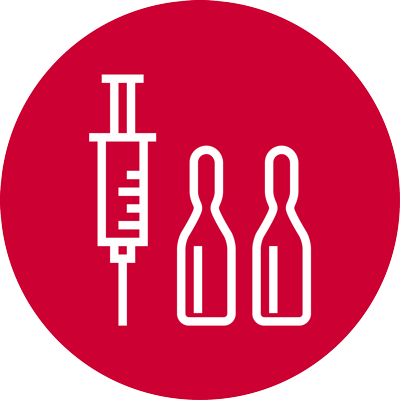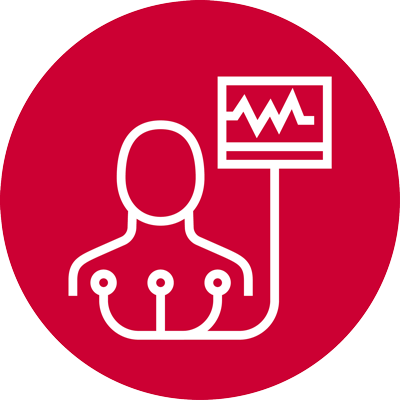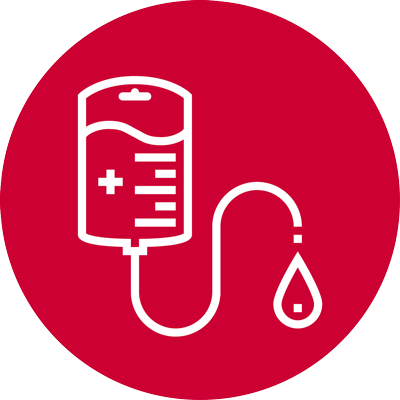

After your most recent heart event or diagnosis, you may have received treatment to help improve the function and blood flow of your heart. This is something decided by your healthcare team based on your personal situation.
Here, we focus on treatments for coronary heart disease, but there are many more that your doctor or other healthcare professional may speak to you about.

|
Breaking down a clotWhat: A type of ‘clot-busting’ (thrombolysis) medicine is used to dissolve blood clots that may be narrowing or blocking a coronary artery. How: The medicine is given by an injection into your vein. |

|
Opening the arteryWhat: A coronary angioplasty (also known as 'percutaneous coronary intervention (PCI)') is a procedure to improve blood flow to the heart. The doctor will often do this at the same time as a coronary angiogram. How: A thin plastic tube, called a catheter, is put into an artery in your groin or wrist. The catheter, which has a tiny balloon at the end, is threaded through the artery until it reaches your heart. The balloon is blown up inside the narrowed part of your artery. Your cardiologist may use a small mesh tube, called a stent, to keep the artery open. You’ll be given a local anaesthetic, meaning you will be awake during the procedure, but it shouldn’t be painful. |

|
Heart surgeryWhat: Coronary artery bypass grafting (CABG) is a type of open-heart surgery that improves blood flow to the heart. How: This procedure is done under a general anaesthetic, which means you will be asleep. A healthy blood vessel (or more than one) is taken from your chest, leg or arm, and attached (‘grafted’) to each side of the blocked artery. This lets blood go around (or bypass) the blockage so that your heart can function normally. After the surgery, your doctor will give you important information to help with your recovery. |
If you had a procedure or heart surgery, looking after your wound will help avoid an infection. Check with your doctor or other healthcare professional about signs of an infection and what to do if you think you have one.
Regular check-ups with your doctor (general practitioner/GP) and cardiologist are an important part of managing your heart health. Your GP will:
Ask your GP for prescriptions for the new medicines you received in hospital. Remember to take your list of medicines, discharge summary and test results along to your GP or cardiologist appointments.
It is important to consider joining a cardiac rehabilitation program as part of your recovery. These programs can help you to learn about managing heart disease and how to engage in healthy physical activity. Ask your doctor for more information about attending a cardiac rehab program.
Last updated29 August 2025